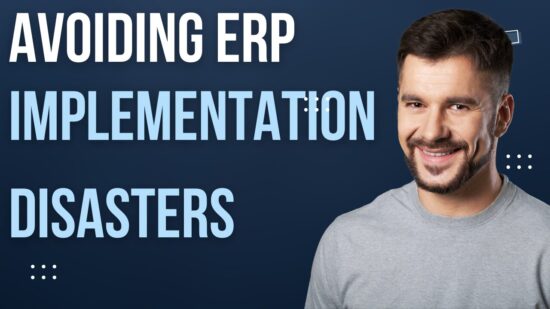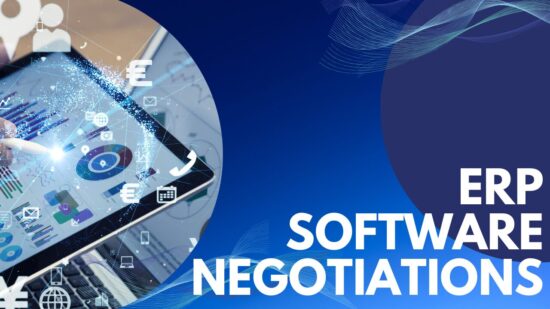ERP System Integration Specialists: Enhancing Business Efficiency Through Expert Solutions
Enterprise Resource Planning (ERP) system integration specialists are critical in modernizing business processes. They provide the expertise required to ensure that ERP solutions are tailored to a company’s unique needs and are integrated seamlessly with existing IT infrastructures. These professionals implement and maintain ERP systems and anticipate needs and customize solutions to streamline operations, thereby enhancing efficiency and productivity.
Integrating an ERP system can be a transformative step for your business, offering access to rapid business analytics and converting data into actionable information, essential for informed decision-making. An ERP system integration specialist rigorously evaluates and executes the best practices to align ERP technology with your business strategies, overcoming challenges and leveraging the latest trends in the industry. With their deep understanding and experience, they are pivotal in helping small, medium, or large businesses navigate the complexities of ERP implementation to achieve improved outcomes and drive growth.
Key Takeaways
- ERP system integration specialists customize and implement ERP solutions to improve business processes.
- Seamless ERP integration enhances decision-making by converting data into actionable information.
- Specialists navigate ERP implementation complexities, ensuring alignment with business strategies.
Understanding ERP Systems
Enterprise Resource Planning (ERP) systems are integral for unifying your company’s core business operations. Your organization leverages a centralized platform through ERP integration to streamline processes and access real-time data.
Core Components of an ERP System
ERP systems comprise various modules that address distinct areas of your business. The core components typically include:
- Financial Management: Track and manage your income, cash flow, expenses, and assets with comprehensive tools for financial operations and reporting.
- Human Resources: Manage employee information, payroll, recruitment, and performance evaluation with the Human Resources module.
- Procurement: Simplify purchasing processes from requisition to order and manage contracts and vendor relationships effectively.
- Customer Relationship Management (CRM): Enhance customer service and sales strategies with tools for customer data management and interaction tracking.
- Inventory Management: Monitor stock levels, manage orders, and track inventory distribution to optimize your supply chain.
- Supply Chain Management: Gain visibility into your supply chain and manage logistics, operations, and inventory with integrated supply chain modules.
Benefits of ERP Integration
Integrating your ERP system across business functions offers numerous advantages:
- Unified Data Source: ERP integration provides a single source of truth, reducing data discrepancies and enabling accurate decision-making.
- Improved Efficiency: Automate and streamline workflows to reduce manual interventions and increase operational efficiency.
- Enhanced Collaboration: Real-time data sharing between departments enhances communication and collaboration within your organization.
- Greater Insight: Generate comprehensive reports and analytics for an in-depth understanding of your business performance across various metrics.
Role of an ERP System Integration Specialist
An ERP System Integration Specialist ensures an organization’s diverse systems work seamlessly. Your expertise in this role can significantly enhance business operations and efficiency.
Key Responsibilities
- System Analysis: You will analyze your organization’s current systems, understanding how they can be integrated into the ERP system.
- Project Management: You’ll oversee the integration process, from concept through implementation, ensuring timelines and milestones are met.
- Troubleshooting: You must provide ongoing support and troubleshooting for any issues that arise post-integration, ensuring system stability and user satisfaction.
- Collaboration: You’ll collaborate with various stakeholders, from developers to business leaders, to ensure the ERP system meets all operational needs.
- Training and Support: You are responsible for training end-users on the new systems and providing continuous support to address operational challenges.
Required Skillsets
- Analytical Skills: Strong analytical thinking is essential for understanding complex systems and integration points.
- Communication: Effective communication is key to explaining technical concepts to non-technical stakeholders and working with teams across the organization.
- Time Management: You must have excellent organizational and time management skills to juggle multiple aspects of the integration process.
- Technical Proficiency: A deep understanding of various ERP platforms, programming languages, and database management is critical.
Certifications and Education
- Degree: A degree in computer science, information systems, or related fields is typically required.
- Certifications: Certifications like SAP Certified Integration Associate or Oracle Cloud Infrastructure Architect Associate can be beneficial.
- Continuous Learning: Since technology evolves rapidly, ongoing education through workshops, seminars, and courses is important to stay current with ERP systems and integration techniques.
ERP Integration Planning
Effective ERP integration planning is imperative for the seamless interconnection of different software applications to your ERP system. This will streamline your workflows and data management.
Assessment and Strategy Development
To ensure a smooth integration process, you must assess your current systems and develop a comprehensive strategy. This involves:
- Identifying key operational processes and how they will interact with the ERP.
- Determining the business objectives that the integration will support.
- Establishing a project timeline with clear milestones.
Data Migration Considerations
During integration, data migration is a critical step that deserves careful planning:
- Map your data meticulously, ensuring every piece of information is accounted for in the new system.
- Plan for data cleaning to remove duplicates and correct errors to ensure the integrity of your data post-migration.
Integration Tools and Platforms
Choosing the right tools and platforms is essential for a successful ERP integration:
- Evaluate Integration Platform as a Service (iPaaS) solutions that can facilitate complex integrations.
- Look for tools that support various data formats and protocols to reduce compatibility issues.
Implementation of ERP Systems
In implementing an ERP system, your main concerns should revolve around the degree of customization required, managing the transition effectively, and ensuring comprehensive user training and support.
Customization vs. Out-of-the-Box Solutions
When you select an ERP system, you face a critical decision between customization and out-of-the-box solutions. Customization means tailoring the system to meet your specific business processes, which can enhance functionality but may increase complexity and cost. On the other hand, Out-of-the-Box solutions are ready-made and can be deployed quickly, but they might not perfectly fit your business’s unique needs. It’s crucial to balance your immediate requirements with long-term scalability.
- Pros of Customization:
- Tailored to specific needs.
- Potentially more efficient.
- Cons of Customization:
- Increases time and cost.
- May complicate future updates.
- Pros of Out-of-the-Box:
- Quicker implementation.
- Typically easier to update.
- Cons of Out-of-the-Box:
- May require process adjustments.
- Could lack niche functionality.
Change Management
Effective change management is essential during ERP implementation to minimize resistance and streamline the transition. You need to establish clear communication channels and provide a rationale for the change to secure buy-in from all stakeholders. Anticipating and addressing concerns proactively can facilitate a smoother integration and lead to the successful adoption of the new system.
- Key Steps in Change Management:
- Communicate the benefits and impact of the ERP system.
- Seek feedback and involve users in the process.
- Provide clear timelines and expectations.
User Training and Support
Training your users is a foundational component of a successful ERP implementation. You must provide comprehensive training programs tailored to different user roles within your organization. Moreover, ongoing support is vital for addressing post-implementation issues and ensuring your team maximizes the system’s capabilities.
- Training Strategies:
- Role-specific sessions.
- Hands-on practical exercises.
- Access to self-help resources and documentation.
- Support Facilitation:
- Helpdesk for immediate assistance.
- Regular system health checks.
- Feedback loops for continuous improvement.
Challenges in ERP Integration
Effective ERP integration presents several hurdles that demand your attention and strategic action.
Dealing with Legacy Systems
You may find that integrating legacy systems with modern ERP solutions is fraught with complications. These antiquated systems often lack the flexibility to communicate seamlessly with newer technologies. Overcoming this challenge typically involves:
- Assessing compatibility between old and new systems.
- Planning for potential data migration issues.
Data Security and Privacy
In any ERP integration, safeguarding data security and privacy is paramount. You need to:
- Ensure compliance with regulations like GDPR or HIPAA.
- Implement robust security measures to protect sensitive data.
Overcoming Common Pitfalls
ERP integration is not without its common pitfalls, which you should be prepared to navigate:
- Data Silos: Break down silos to ensure unified data visibility across all systems.
- Complexity: More connections can lead to increased complexity. Strive for clear data-mapping processes.
- Compatibility Issues: Check for software compatibility early to avoid mismatched systems.
- Performance Bottlenecks: Monitor ERP system performance to identify and resolve any bottlenecks quickly.
ERP System Integration Trends
As you navigate the evolving landscape of enterprise resource planning (ERP), you’ll encounter new technologies and industry practices shaping the future of system integration.
The Future of ERP Technologies
Two-Tier ERP Systems: Organizations may adopt a two-tier ERP strategy to maintain their investment in existing systems at the corporate level (tier 1) while simultaneously allowing subsidiaries to leverage different, often cloud-based, ERP solutions (tier 2). This approach can offer greater flexibility and scalability.
Cloud and Composable ERP: The transition to cloud-based solutions is prominent, offering accessibility and integration ease. Furthermore, the rise of composable ERP, where you can assemble and reassemble components, fosters more adaptable system environments.
Emerging Industry Practices
Integration Complexity Simplification: You’ll see a unified environment through integration Platform as a Service (iPaaS) that simplifies connecting various systems like ERP, CRM, and HR platforms despite differing data formats and protocols.
Extensibility and Integration: Ensuring that your ERP system offers extensibility to connect with other software seamlessly is becoming a standard practice. Look for ERP solutions with integration capabilities to remain agile and responsive to changing business needs.
Case Studies and Success Stories
When you explore the realm of ERP system integration, real-world case studies and success stories provide invaluable insights. Here’s a snapshot of successful implementations:
Grooming Products Manufacturer
- Challenge: Streamlining complex operational processes
- ERP Solution: Adoption of a tailored ERP system
- Outcome: Enhanced management of inventory and customer relations
Rapidly Growing Moving Business
- Challenge: Scaling operations efficiently
- ERP Solution: Implementing an adaptable ERP system
- Outcome: Improved logistics coordination and cost management
Specialized Shipping Logistics
- Challenge: Overcoming logistical bottlenecks
- ERP Solution: Integration of a robust ERP system with existing platforms
- Outcome: Optimized shipping processes and real-time data access
By examining these case studies, you can better understand the transformative impact of a well-executed ERP integration. Whether it’s for a small business or a large enterprise, ERP systems help streamline operations, manage finances, and improve customer service.
Evaluating ERP System Integration Providers
Selecting the right ERP system integration provider is crucial for the success of your enterprise resource planning implementation. Your choice will impact how seamlessly your new ERP system communicates with existing systems.
Criteria for Selection
When evaluating ERP system integration providers, you should examine several critical factors:
- Service Scope: Review the scope of services outlined in the providers’ proposals to ensure they meet your organization’s specific needs.
- Experience and Expertise: Consider the provider’s track record with ERP systems similar to your business scale and industry.
- Integration Strategy: Evaluate the provider’s approach to integration, whether they prefer using APIs, custom development, or another method.
- Vendor Stability: Research the vendor’s financial stability, market presence, and longevity in the business.
- Cost: Ensure the cost structure is transparent and aligns with your budget. Remember to consider long-term costs beyond the initial setup.
- Support and Maintenance: Clarify the ongoing support and maintenance level post-integration.
- Client References: Request and check client references to validate the provider’s reliability and performance.
Comparing Top Vendors
To compare top ERP system integration providers, you can:
- Create a Comparison Table that lists each vendor against your selection criteria, ensuring you cover all key areas.
| Vendor | Service Scope | Experience | Integration Strategy | Vendor Stability | Cost | Support | Client References |
|---|---|---|---|---|---|---|---|
| A | Comprehensive | Extensive | API-first | High | $$ | 24/7 | Available |
| B | Customizable | Moderate | Custom Development | Medium | $$$ | Business Hours | Available |
| C | Standardized | Newer | Hybrid | Low | $ | Email Only | Limited |
- Prioritize the criteria based on what’s most important for your business’s needs and use that to rank the vendors.
By methodically assessing the vendors’ service scope, expertise, strategies for integration, stability, cost implications, support structure, and client feedback, you position yourself to make a well-informed decision for your ERP system integration.
BACS Consulting Group Is Your ERP Systems Integration Specialist
BACS Consulting Group stands at the forefront of technology evolution, providing comprehensive IT solutions tailored to your needs. In the dynamic landscape where information is king, you can rely on BACS to transform raw data into actionable insights for informed decision-making.
Specializing in ERP system integration, BACS Consulting Group brings over three decades of data management experience. The focus has shifted from sheer data handling to strategic information management, where BACS excels. Their expertise lies in deploying ERP software and ensuring it acts as a conduit for turning data into intelligence—fueling business growth, efficiency, and adaptability.
Services Offered by BACS Consulting Group:
- ERP Selection: Tailoring solutions to align with your business objectives, BACS assists in selecting the right ERP system to streamline operations effectively.
- Vendor Evaluation: Guiding you through the intricate process of ERP vendor assessment, BACS ensures seamless integration and peak system performance.
- Implementation Support: Recognizing the complex nature of ERP implementation, BACS dedicates itself to simplifying this transition, mitigating the common risk of project shortfalls.
- System Administration: With BACS, enhance your team’s competency through expert training sessions and support that boost your capability to handle ERP systems confidently.
- Continuous Improvement: BACS believes in the incremental enhancement of systems, refining processes to amplify decision-making, and ensuring your technological framework remains robust and future-proof.
Embrace the shift towards knowledge-based business analytics with BACS Consulting Group—the ERP systems integration specialist equipping you to navigate the digital transformation landscape easily and precisely.







